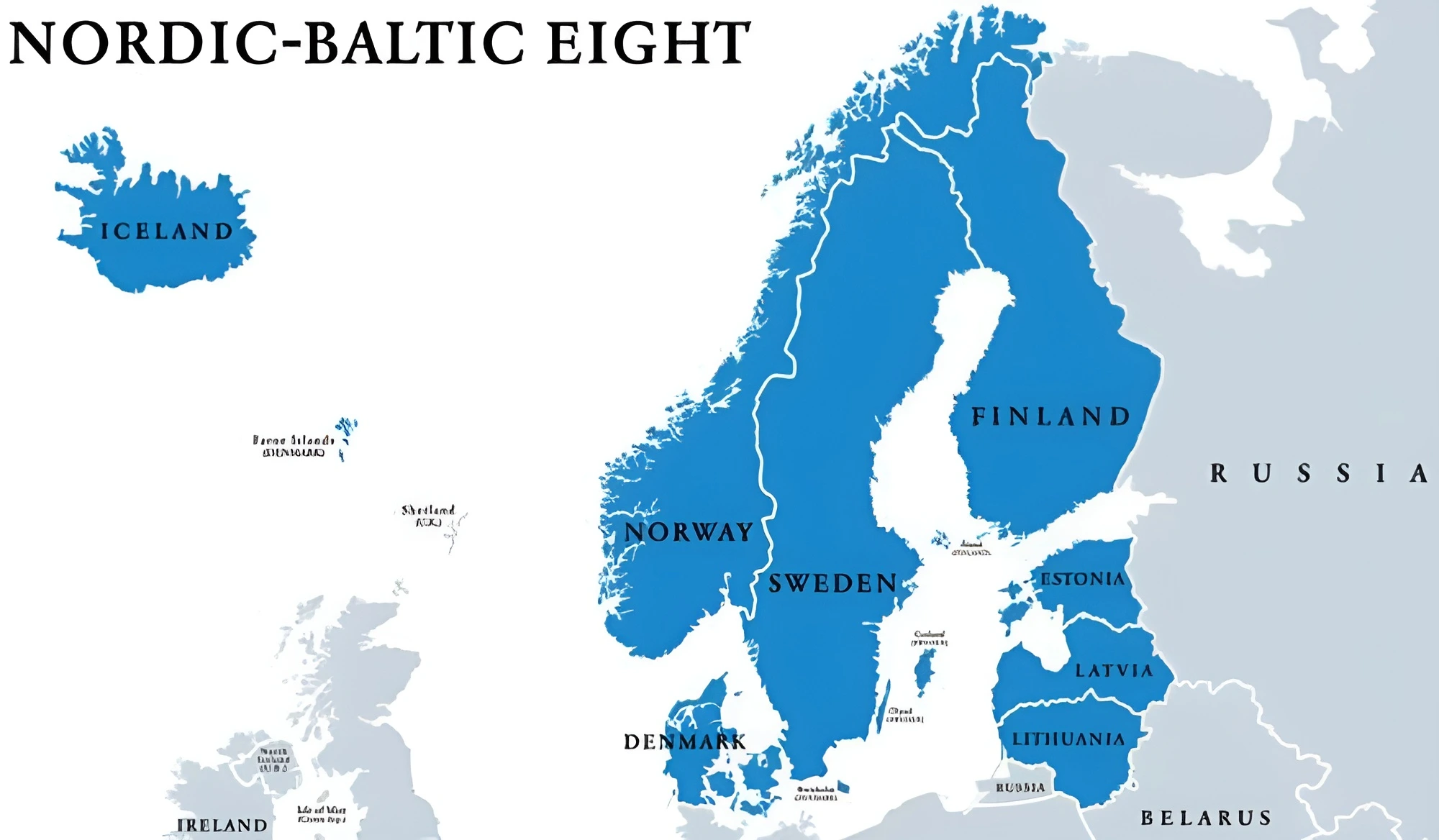
Prelims Relevance: Nordic-Baltic countries(mapping)
Mains-Relevance: bilateral, regional, and international alliances affecting India’s
interests, Nordic-Indian collaboration on a sustainable shift
Highlight: Eight Nordic-Baltic countries conclude the Riasina dialogue in New
Delhi in fabruary’24.
Importance of the dialogue:
- This is the first NB8 high-level delegation to take place outside of Europe.
- importance of global cooperation amidst turmoil and conflict.
- cooperation, communication, and trust in order to defend peace, stability,
and to thwart aggression.
Details: - ‘The Nordic-Baltic Eight’, regional cooperation made up of eight Northern
European nations, is referred to as the NB8 grouping.
o Denmark, Finland, Iceland, Norway, and Sweden are the Nordic
nations.
o Lithuania, Latvia, and Estonia are the Baltic nations. - Nordic has led the way in the development of cutting-edge green
technologies and solutions over the past few decades, including hydrogen,
offshore wind, batteries, and carbon capture and storage options—all of
which are critical for the world to successfully complete the much-needed
green transition.
Significance of Visit to India
- Strategic Alliances: India can gain from developing closer ties with
Nordic-Baltic nations, which are well-known for their support of
multilateralism, democracy, and human rights. Improved collaboration has
the potential to raise India’s profile internationally as a responsible player
dedicated to maintaining common ideals and values. - Expanded Economic Cooperation: The visit of the NB8 delegation presents opportunities for increased economic cooperation between the Nordic- Baltic region and India. India can investigate prospects for technology transfer, investment, and joint ventures across sectors like green transition, innovation, and digitalisation by utilising the advanced economies and innovation-driven industries of the NB8 countries.
- Trade and Investment: Increased trade and investment between India and
the Nordic-Baltic region can be facilitated by closer communication and
collaboration with the NB8 member nations. By opening up new markets
for Indian products and services, this kind of cooperation could broaden
India’s trade relationships and promote economic development. - Information Sharing: The NB8’s involvement in the Raisina Dialogue
provides India with a forum for information sharing and opportunities for
mutual learning. Working together in fields like innovation, technology,
and sustainable development can enable India to take advantage of the
know-how and industry best practices of the Nordic and Baltic nations to
address its own developmental issues. - Increasing regional security and stability in the Indo-Pacific region can be
greatly aided by closer cooperation with Nordic and Baltic nations. In line
with India’s strategic interests, closer cooperation on defence cooperation,
maritime security, and geopolitical issues can foster an atmosphere in the
region that is favourable to peace and prosperity. - Promotion of Shared Values: India’s resolute commitment to advancing
shared values of democracy, human rights, and international law is
reaffirmed by its engagement with the NB8 nations. By working together
with partners who share similar values, India can strengthen its position on
the international scene and achieve shared goals that promote stability,
peace, and respect for the rule of law.
Conclusion: Strengthening ties and collaboration with the Nordic-Baltic
countries will benefit India greatly. India’s reputation is improved internationally
by fortifying strategic alliances with countries that support democracy and
multilateralism. India and the Nordic region can work together to provide vital
technologies and solutions that will halt climate change and promote green
growth.







